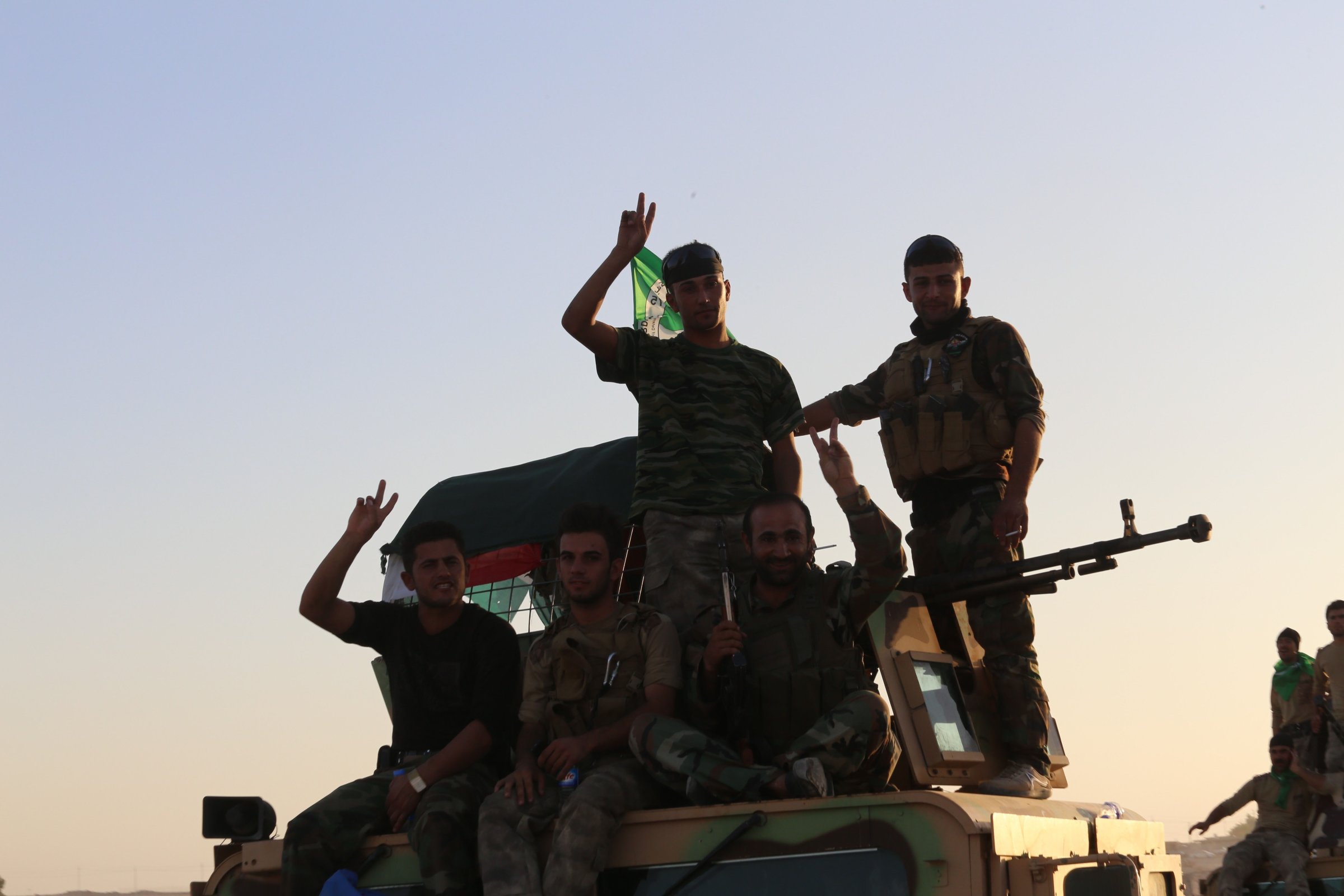
President Obama was eager to pull U.S. troops out of Iraq, is eager to pull them out of Afghanistan, and refused to put them into Libya and Syria. His reticence is justifiably rooted in opposition at home to any more ground combat following more than a decade of war after 9/11.
But over the weekend, he warned that the Islamic State of Iraq and Syria’s threat to Kurdish city of Erbil in northern Iraq warranted U.S. military airstrikes, and that they could continue over a sustained period of time. “I don’t think we’re going to solve this problem in weeks,” he said Saturday. “This is going to take some time.” On Sunday, Kurdish forces reportedly ousted ISIS fighters from a pair of border towns 20 miles from Erbil as U.S. warplanes conducted a third consecutive day of attacks on ISIS forces.
Changes in waging war have proliferated since the so-called non-state actors known as al-Qaeda brought down the World Trade Center towers, attacked the Pentagon and sent United Flight 93 diving into a Pennsylvania field. The foe is elusive, metamorphosing from al-Qaeda in Iraq to ISIS, as the jihadist leaders wage battle among themselves for supremacy.
Any conflict that begins, as the latest Iraq venture did, with humanitarian airdrops to thousands of dehydrated and hungry Yazidis in and around Mount Sinjar makes for a different kind of war.
Obama said he acted because of concerns for the safety of U.S. military advisers and consular officials in Erbil, threatened by an ISIS advances over the past week. The advisers are there, and in Baghdad, to plot how the U.S. can aid the Iraqi government of Nouri al-Maliki in its battle against ISIS. Without such a U.S. stake in Libya or Syria, he has felt no need to take military action there.
But the flames now burning around the Middle East are part of a larger conflagration, fueled by crumbling autocracies and religious zealots, who are recruiting unemployed young men eager to belong to something bigger than themselves.
The U.S. and other Western nations essentially are biding their time, hoping such fires will eventually die out with minimal involvement by them. That could happen.
But if ISIS succeeds in establishing anything approximating a real state straddling the Syrian-Iraq border, it will become a new launching pad for attacks against the U.S. and its interests, just like in Taliban-led Afghanistan.
“Every day that goes by, ISIS builds up this caliphate and it becomes a direct threat to the United States of America,” Rep. Peter King, R-N.Y., chairman of the House subcommittee on counter-terrorism, told NBC’s Meet the Press on Sunday. “They are more powerful now than al-Qaeda was on 9/11.”
Obama and his successor know that they cannot allow a jihadist-run state, pledged to killing “infidels,” in the heart of the Middle East.
“I would be rushing equipment to Erbil,” Senator John McCain, R-Ariz., told CNN Sunday. “I would be launching airstrikes, not only in Iraq but in Syria against ISIS.”
In a prescient comment that turned out to be correct, then-Defense Secretary Donald Rumsfeld warned in 2003 that the wars in Afghanistan and Iraq would be “a long, hard slog.” Americans tired of both, in part because of the Bush Administration’s ambitious, costly and unrealized plans for remaking both nations.
But what we’re seeing now is a new kind of war, and it requires a new kind of leadership.
Iraq, for its part, needs a leader who can gather its warring factions under one roof and turn it into a functioning 21st Century state.
If such a leader fails to materialize, Iraq will continue its slow-motion suicide.
Then it will take a U.S. leader who is willing to detail the possible risks of continued half-hearted actions—what the New York Times called “a Military Middle Road” in a Sunday headline—in the region. He—or she—will have to fashion a new kind of calibrated, and sustained, warfare that a democracy can support.
More Must-Reads from TIME
- Donald Trump Is TIME's 2024 Person of the Year
- Why We Chose Trump as Person of the Year
- Is Intermittent Fasting Good or Bad for You?
- The 100 Must-Read Books of 2024
- The 20 Best Christmas TV Episodes
- Column: If Optimism Feels Ridiculous Now, Try Hope
- The Future of Climate Action Is Trade Policy
- Merle Bombardieri Is Helping People Make the Baby Decision
Contact us at letters@time.com